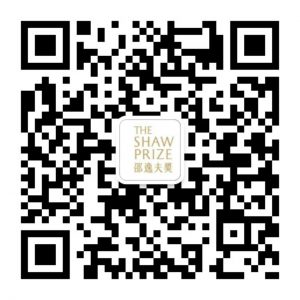The Shaw Prize in Mathematical Sciences for 2013 is awarded to David L Donoho, Anne T and Robert M Bass Professor of the Humanities and Sciences, and Professor of Statistics at Stanford University, USA for his profound contributions to modern mathematical statistics and in particular the development of optimal algorithms for statistical estimation in the presence of noise and of efficient techniques for sparse representation and recovery in large data-sets.
The dramatic developments in technology in the last half century present fundamental new challenges in theoretical and applied mathematical statistics. David Donoho has played a major role in developing new mathematical and statistical tools to deal with such problems ranging from large data-sets in high dimensions to contamination with noise. His work provides fast, efficient and often optimal algorithms which are founded on rigorous mathematical analysis.
Key themes introduced in his works, and which today are standard features of the theory, include the exploitation of sparseness of representation of complex objects, related adaptive nonlinear thresholding techniques and the deep relation between sparseness and certain penalty functions that are being minimized (specifically L1 norms).
Many of these emerge from his development of algorithms for statistical estimators in the presence of noise. These are remarkable in that they overcome the difficulties associated with noise, with very little loss of efficiency or reliability. Along the way, he demonstrated the power of the mathematical theory of wavelets in dealing with such problems in statistics. The Donoho–Johnstone soft-thresholding algorithm has been widely used in statistical and signal processing applications.
During the last 15 years Donoho has developed a theory of sparse and multi-scale representations of signals and data-sets using nonlinear L1 optimization methods. These combine very well with techniques of unstructured and redundant dictionaries of functions and provide a fundamental approach to lower the dimensionality of complex problems. Along with Candes and Tao, he made fundamental contributions to the development of “compressed sensing”. In terms of sparseness and recovery, this method which “compresses while sensing the data”, using dramatically fewer data points while retaining the ability to recover the correct signal, yields strikingly efficient and even optimal algorithms for compressing and decompressing complex signals (e.g. images). This area remains a very active area of research especially in view of its wide applications.
Mathematical Sciences Selection Committee
The Shaw Prize
28 May 2013 Hong Kong
